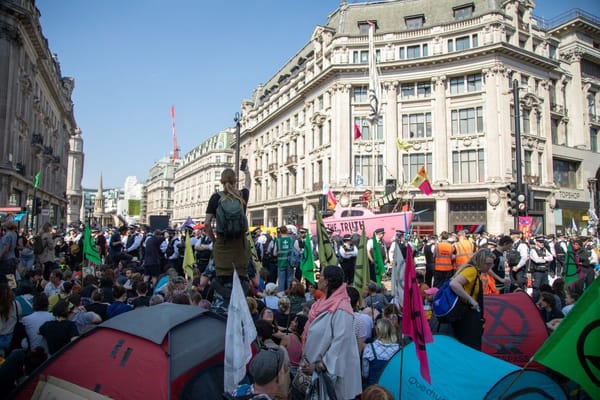California Fires Put Pressure on the US to Improve Environmental Policies
With a total of 17 wildfires burning in California this week, the USA’s businesses and councils are increasing actions against climate change

For the past week, statewide wildfires in California have been blazing, having turned to ashes more than 80 000 acres, most in the counties of Sonoma and LA. The biggest fire is the Kincade Fire in the North of California. As of now, the fire is only 15% contained and has burned at least 74 000 acres, leaving more than a million citizens without electricity or service.
Nearly 200 000 people have been ordered to leave their homes, while an astonishing 4000 firefighters are battling the flames. Fire department representative Jonathan Cox says it could take “weeks, if not months” to extinguish the fires fully.
It is becoming more and more evident that the frequency and intensity of these fires are highly linked to climate change, more specifically they are linked to wind and soil conditions.
Indeed, climate change has led to an average increase of 3 degrees Fahrenheit for this time of year in California. This signifies hotter winds during wildfire season and drier soils. The combination proves to have immeasurable impacts on the number, size and power of the fires; 15 of the 20 largest fires in California history have happened since 2000 and the area burned has increased by 500%.
The current climate trends could signify a longer wildfire season. However, generally, it is uncertain what climate change will mean for the future. The fires may be less frequent, according to a study by Guzman-Morales and Gershunov from January 2019.
With powerful natural disasters increasing not only in rate but also in proximity to large cities, will the US rethink its current Climate plan?
The country’s President seems set to leave the Paris agreement as soon as possible; his administration is said to be beginning the official withdrawal from the Paris accords on November the 4th. As the fires will undoubtedly have effects on the country’s economy as well as Californians health and way of life, politicians, institutions and major companies are retaliating by installing acts and encouraging the citizens to take action, despite the White House’s agenda.
For them, the fires have sparked new conversations on current and future plans to decrease carbon emissions. For instance, democratic congresswoman Alexandria Ocasio-Cortez has been very active on twitter to remind the people to act quickly before the consequences of climate change become irreversible. “This is what climate change looks like,” she wrote of a photo of the fire. “We have 10 years to cut carbon emissions in half. If we don’t, scenes like this can get much worse.”. She continues to strive for the acceptance of a Green New Deal - legislation centered around sustainability, focusing on tackling climate change and fixing the current economic inequality.
States are trying to adopt legislation to transition to cleaner energy sources, but the deadlines remain distant. For example, the 9 states making up 16% of the US’s electricity demand, including California, Washington and Nevada have enacted 100% clean energy legislation with targets between 2040 and 2050. To decrease carbon emissions, California is inspiring other states to join their zero-emission vehicle (ZEV) mandate requiring automakers to sell electric vehicles.
There is also a notable increase of commitments from cities: since 2017, 80 cities have committed to 100% renewables.
Finally, two major energy companies, Xcel Energy and National Grid, have aimed to dramatically reduce carbon use. Xcel, for example, plans to go 100% coal free by 2030 and 100% carbon free by 2050.
There has been some pushback from the administration against most of the acts put into place. For instance, they are trying to revoke the changes that California had made on the Clean Air Act to make it stricter. Nonetheless, the general consensus from Americans is positive: 71% say they want the federal government to do more on climate change, while 67% say it will have a positive impact on the economy and jobs.
This year, after the major wildfires in the Amazon, 230 institutional investors raised USD $16.2 trillion in assets. As the California fires are expected to grow during the week, will they play a role in moving the deadlines for climate action and increasing funds? One thing is sure, if we want to act before it is too late, we must continue to make changes in the courtroom as well as in households, and we must make them now.








